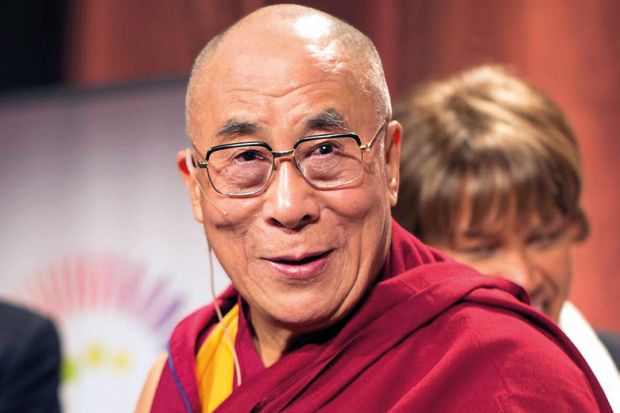The Chinese government is reportedly placing restrictions on academic exchanges with a US university which invited the Dalai Lama to be its commencement speaker.
Victor Shih, an associate professor of political economy at the University of California, San Diego, posted on Twitter a document that he said a colleague received directly from the China Scholarship Council, suggesting that the agency will no longer process applications for prospective visiting scholars to the institution who have not already scheduled visa interviews.
Professor Shih said that this was “presumably” due to UCSD’s decision to invite the Dalai Lama, spiritual leader of Tibet, who is viewed as a separatist by the Chinese government.
A UCSD spokeswoman said that the university had “learned unofficially that the China Scholarship Council has apparently issued instructions about CSC-funded visiting scholars who do not yet have visas – that they will not be allowed to study at the UC San Diego”.
“We were not notified of this directly by the China Scholarship Council, so we are currently making inquiries to find out if this is case,” the spokeswoman said.
Some Chinese students at UCSD protested the university's decision to invite the Dalai Lama, a Nobel Peace prizewinner.
“The Dalai Lama is not only a religious personality but also a political exile who has long been carrying out actions to divide the motherland and to destroy national unity,” UCSD's Chinese Students and Scholars Association said in a statement after the invitation to the Dalai Lama was announced. The group said it had consulted with the Chinese consulate in Los Angeles for guidance.
A Chinese newspaper known for its nationalistic, bombastic rhetoric also blasted UCSD for the invitation and said its chancellor, Pradeep Khosla, “must bear the consequences for this.”
“Don't naively believe that China will acquiesce to the chancellor of UCSD. His support for Tibet independence will affect his personal and the university's exchanges with China. Chinese universities will take cooperative programs with it into prudent reconsideration,” the article in The Global Times said.
“It's suggested that relevant Chinese authorities not issue visas to the chancellor and not recognise diplomas or degree certificates issued by the university in China.”
Some scholars have expressed concern about the growing influence China has gained over American universities as the number of Chinese students in the US has soared – and as American universities have become increasingly reliant on the tuition dollars they bring. After the University of Calgary awarded the Dalai Lama an honorary degree in 2009, the Chinese government removed the institution from its list of accredited universities, raising concerns about possible impacts on recruitment and on the value of degrees held by alumni in China (Calgary's place on the list was subsequently restored).
The reported action by the China Scholarship Council in regards to UCSD would appear to not directly affect self-funding Chinese undergraduates, only those scholars who are sponsored by the government.
Of the invitation to the Dalai Lama, the university had previously issued the following statement: "The University of California, San Diego, has always served as a forum for discussion and interaction on important public policy issues and respects the rights of individuals to agree or disagree as we consider issues of our complex world. Our 2017 speaker, His Holiness the 14th Dalai Lama, carries a message that promotes global responsibility and service to humanity that is of great interest to the UC San Diego community and to our students as they enter their professional lives. As a public university dedicated to the civil exchange of views, the university believes commencement is one of many events that provide an appropriate opportunity to present to graduates and their families a message of reflection and compassion."
This is an edited version of a story which first appeared in Inside Higher Ed.
Register to continue
Why register?
- Registration is free and only takes a moment
- Once registered, you can read 3 articles a month
- Sign up for our newsletter
Subscribe
Or subscribe for unlimited access to:
- Unlimited access to news, views, insights & reviews
- Digital editions
- Digital access to THE’s university and college rankings analysis
Already registered or a current subscriber? Login







